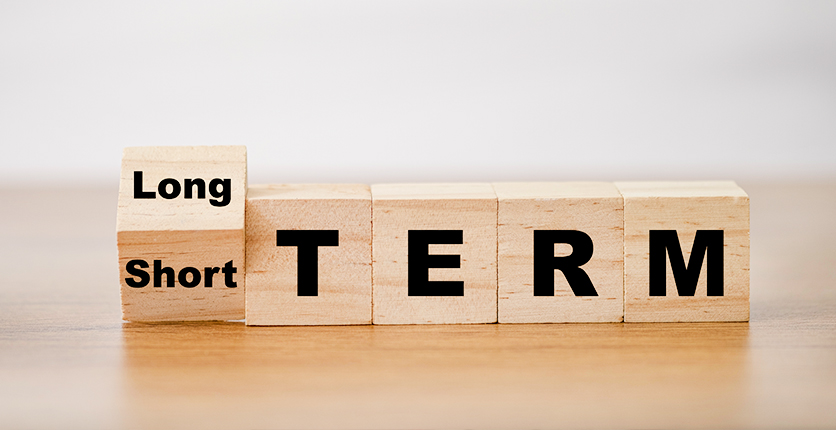Getting married, buying a home and starting a family are just some of the major milestones that many of us strive to achieve in our 20s and 30s. As we get older, we may start to think about retirement.
While these milestones are exciting and certainly a cause for celebration, we can’t escape the fact that their costs can be pretty significant.
The best way to prepare yourself for these landmark moments – and avoid financial stress down the road – is to start putting money aside for them now. If you’re in your early 20s and just starting out in your career, you have time on your side, says Muhammad Firdaus Syazwani, founder of Dollar Bureau, a platform that educates people on financial matters.
Here, Firdaus shares his tips for planning for key milestones and making sure that you’re financially set for them.

Q: What are some of the key financial milestones for Singaporeans?
Firdaus: The main ones include getting their first job, buying their first home, getting married, having children, and retirement.

Q: At which age do these milestones typically occur, and roughly how much money would a person have at each milestone?
Firdaus:
Getting your first job:
- Age range: Singaporeans usually enter the workforce and get their first full-time job between 22 and 25 years old.
- Range amount: Those who start work after finishing junior college, polytechnic or National Service tend to have less than $1,000 in savings. Those starting after university will on average have between $2,000 and $5,000.
Getting married and buying your first home:
These are lumped together as they often occur within a year or two of each other. Couples usually have these planned together and jointly save for them.
- Age range (marriage): This usually occurs in one’s late 20s or early 30s, mostly between 25 and 28 years old.
- Age range (buying your first home): The age varies, but it often occurs between 25 and 35 years old.
- Range amount: More prudent poly/JC grads will typically have more money saved for this milestone, with at least $30,000 in savings due to a longer time in the workforce.
University graduates (men) will have less – on average between $10,000 and $30,000. This amount can be higher or lower depending on how long their degree programme lasted, how early they paid/pay off their tuition loans, and how soon they want to get married and buy a home.
Having children:
- Age range: Many Singaporeans start having children between their late 20s and early-to-mid 30s (about two to three years after getting married and buying their first home).
- Range amount: Individuals will usually have about $15,000 to $20,000 saved before having their first baby. This takes into account the savings used to pay for their wedding, home, renovations and honeymoon.
Retirement:
- Age range: The desired retirement age varies for different people. Some Singaporeans choose to retire at 55, but most tend to retire between 60 and 70.
- Range amount: This range is pretty wide, but most Singaporeans aim to have about $1,000,000 in savings (cash + CPF + investments). From what our partners have observed so far, most realistically have $300,000 to $500,000 (cash + CPF + investments) in savings when they turn 65, and above $1,000,000 if their spouses are included.

Q: How did you arrive at all these amounts?
Firdaus: These amounts are from data we have collected over the three-and-a-half years of running Dollar Bureau. We’ve had over 1,000 requests for financial planning assistance by Singaporeans and permanent residents. Age ranges and amounts were anecdotally obtained by our partner financial advisors.
Our clients are from a range of demographics, life stages, income levels and so on, thus, the range can be quite big depending on the individual.

Q: As someone just starting out in life, saving for these milestones can be quite daunting. How does one start saving for it, or at least make a plan to save?
Firdaus: With proper planning, saving for these milestones is achievable.
First, identify your financial goals and milestones, such as buying a home, starting a family, and retirement. Next, calculate the amount of money you’ll need for these goals and how much time you have to save for them.
You should also have an honest discussion with your partner or spouse (when the time comes) about how you can both save for your financial milestones together. This will help you determine how much time you have.
Consider opening a savings account specifically for your financial milestones, and automate your savings by setting up a direct deposit from your monthly pay cheque. This is best for short- to mid-term goals. You can consider putting these funds in fixed deposit/cash management accounts or other low-risk, short-term investment vehicles.
For longer-term goals, consider investing in stocks, ETFs or unit trusts, but do your research beforehand and understand the risks involved. It’s best to consult a financial advisor who can help you optimise your cashflow so that you don’t overcommit and negligently invest.
Additionally, consider cutting back on unnecessary expenses and finding ways to increase your income through side hustles or part-time jobs.
You might also consider delaying your milestones to a later age, so that you don’t feel overwhelmed about having to save a certain amount by a specific time.
For example, instead of holding your wedding reception immediately after your ROM appointment, you may wish to delay your wedding so that you have more time to save for it.
Retirement is also a big milestone, but many people wouldn’t have saved enough for this stage of life by the time they actually decide to retire.
What are the bad money habits that prevent you from attaining your financial goals? Find out here.

Q: How can a young NSman grow his savings so that he has an ample retirement fund when he’s ready to retire?
Firdaus: As a young NSman, you have time on your side. Assuming you’re 20 years old now, you probably have at least 45 years to save before you hit the average retirement age of 65.
If you save $100 a month for 45 years, and at 8% returns, your investment will be worth $463,806.74 but your total contributions would only be $54,000. If you’re aiming for $1,000,000 in retirement savings, then just doing this would get you halfway to your goal.
Assuming the CPF BRS (Basic Retirement Sum) rates grow at 3% yearly and you hit your FRS (Full Retirement Sum) before retirement, that’s another $751,781.25 in your CPF account.
This totals $1,215,588 in retirement savings, 45 years down the road.
Of course, by the time you turn 65, this amount might not be enough for retirement due to inflation, but this shows you that time is on your side if you start saving now.
Sure, you may increase the amount you invest monthly as you grow older and earn a higher salary. You may also have joint savings with your spouse, so the total figure can easily double.
So you’re single and want to retire at 50? Here’s how.

NSmen, sign up for your complimentary 1-year SAFRA membership and enjoy discounts on dining and shopping purchases at over 1,500 merchant outlets islandwide, as well as members’ rates at more than 45 sports facilities at SAFRA clubs! What’s more, your family can enjoy the privileges too – your 1st dependent pays $10/year, and it’s free for your 2nd dependent onwards. Click here for more details.
Want more articles like this, and other lifestyle content right in your inbox? Download the new SAFRA mobile app and opt in for the eNSman Newsletter – you don’t need to be a SAFRA member to subscribe – and never miss another story!








